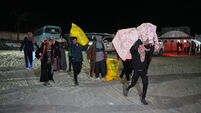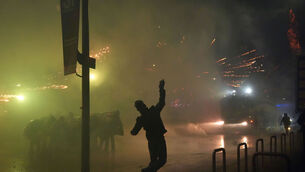Russia denies illegally annexing Baltic states
Russia today denied it illegally annexed the Baltic nations in 1940, rejecting demands from the three former Soviet republics that it admit having illegally occupied them during the Second World War.
Russia’s point man on relations with the European Union, Sergei Yastrzhembsky, said the Baltic governments of the time had willingly invited Soviet troops into their countries and agreed to join the Soviet Union.














